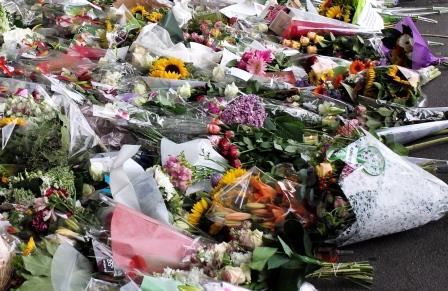Diane Portnoy
The ILC Founder and CEO
The Battle of Lexington in 1775 sparked the American Revolution and became famous for the “shot heard round the world.” At that time, it could take months for news to travel, and yet that revolution, our revolution, had a profound impact on the rest of the world that continues to this day. Nowadays, news travels almost instantaneously. The tragic massacre that occurred in New Zealand last week was broadcast in real-time and could be heard and seen as it happened by anyone with an internet connection anywhere in the world. In the days since, I’ve seen a number of people try to isolate themselves from this incident, saying this was an isolated act by a sick individual with no one to blame but the shooter. Today more than ever, none of us is truly isolated. For better or worse, events around the world impact and are impacted by us.

Americans were impacted by this attack that occurred more than 9,000 miles away. Within hours, worshipers in Boston reported being afraid to attend Friday prayers. In cities across the country from Boston to New York, Detroit, Chicago and beyond, law enforcement officials stepped up security at mosques, synagogues and other houses of worship. The rise of White Nationalism in the United States is mirrored by increases in racism, anti-Semitism, Islamophobia and xenophobia around the globe.
It is no coincidence that attacks on both synagogues and mosques are on the rise. Just two days after the shooting in New Zealand, police in Fall River, MA, discovered a Jewish cemetery had been defamed with swastikas and anti-Semitic graffiti.The Anti-Defamation League documented anti-Semitic incidents at an all-time high in the U.S. The American Civil Liberties Union reports that existing and proposed mosque sites across the country have been targeted for vandalism and other criminal acts, and there have been efforts to block or deny necessary zoning permits for the construction and expansion of other facilities. Similar spikes in aggression toward religious groups are occurring throughout the world. While Muslims and Jews are often pitted against each other, both groups have historically been targeted and scapegoated as “the other.” That is why Jewish groups were quick to support the Al Noor and Deans Avenue mosques, and why the Muslim American community raised more than $150,000 for the victims of the mass shooting at Tree of Life synagogue in Pittsburgh just five months earlier.
As the daughter of Holocaust survivors, I take this personally. Bigotry has always existed, but our tolerance for it waxes and wanes. I know how dangerous it is when we as a society allow bigotry to go unchallenged. I have also seen first-hand the power of our shared humanity to take us from stranger to friend, and it gives me hope. At The Immigrant Learning Center, strangers from around the world enter a classroom. They come speaking different languages, from different cultures, practicing different religions and carrying their own pre-existing biases. After a few months together learning the skills they need to survive and thrive in their new home, they see they are in this together and start to view each other as family. The truth is, we are all in this together. At The ILC, we are doing what we can to help everyone understand this. The ILC Public Education Institute is dedicated to helping Americans understand that immigrants are assets to this country, and together we can continue to make it better and better for everyone.
What we do, as Americans, as humans, impacts others. There is no neutral existence. Each of us must decide what kind of impact we want to have.
